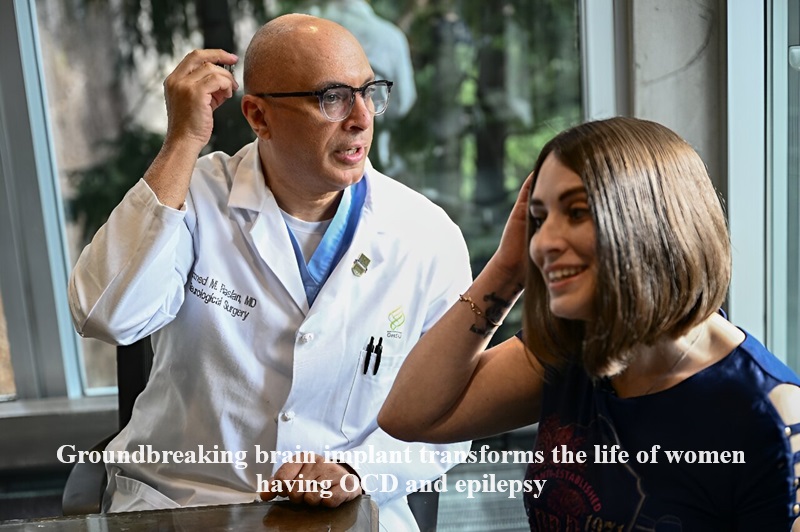
Amber Pearson, an American who battled the debilitating effects of obsessive-compulsive disorder (OCD), found relief and transformation through a groundbreaking brain implant originally designed to treat epilepsy. Pearson, tormented by severe OCD symptoms, including compulsive handwashing that led to bleeding, underwent a procedure at Oregon Health and Science University to address her epileptic episodes.
The 32-millimeter brain implant initially targeted epilepsy, but Pearson, in collaboration with neurosurgeon Ahmed Raslan, proposed incorporating treatment for her OCD by utilizing the implanted device. During the procedure, Raslan and Pearson conducted studies to identify the specific brain activity associated with her obsessive behavior. Exposing Pearson to stressors and recording electrical markers allowed them to isolate the signals related to her OCD. Subsequently, the brain implant was customized to respond specifically to these identified signals.
The innovative dual-purpose implant not only addresses epilepsy but also offers a unique approach to treating OCD by directly targeting the neural signals associated with obsessive behavior. This groundbreaking intervention has significantly improved Pearson’s quality of life, highlighting the potential of such neurotechnological advancements in revolutionizing the treatment of mental health disorders.
Amber Pearson’s story exemplifies the intersection of medical innovation, patient collaboration, and the transformative impact of neurotechnology on mental health. The tailored approach to treating OCD through brain implants showcases the evolving landscape of medical interventions that aim to enhance the lives of individuals grappling with complex neurological and psychiatric conditions.

Post Your Comments